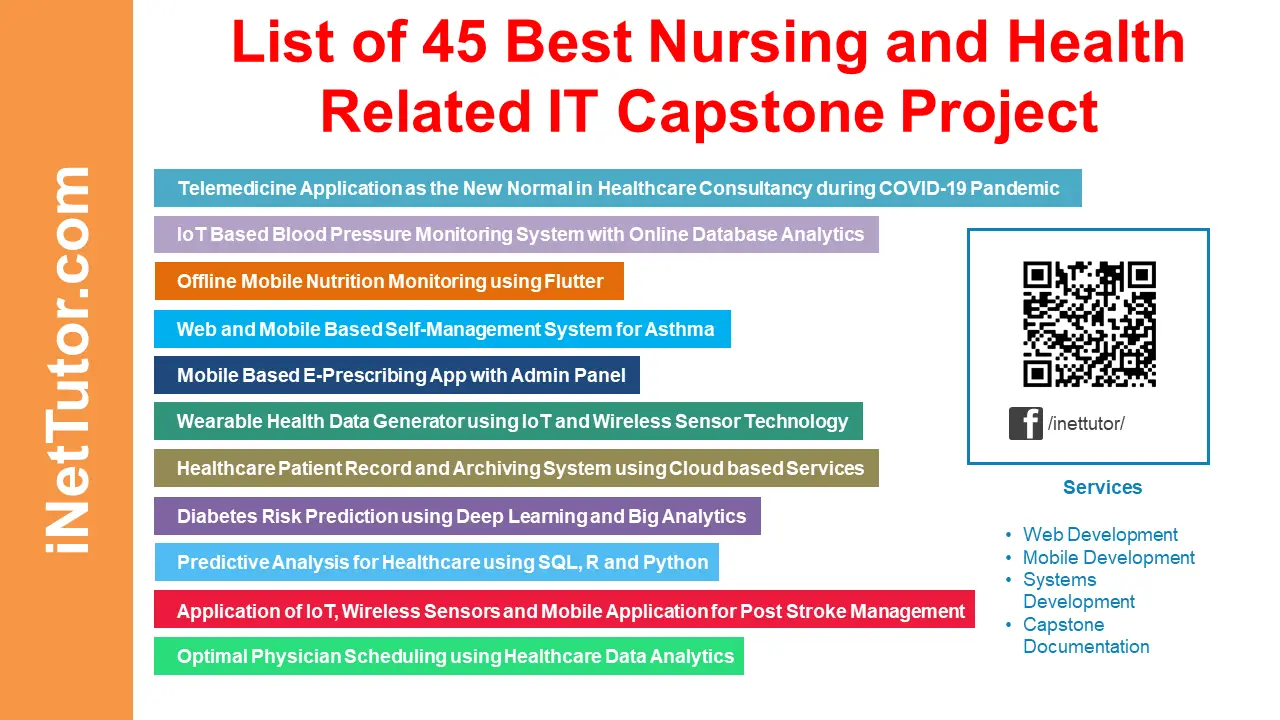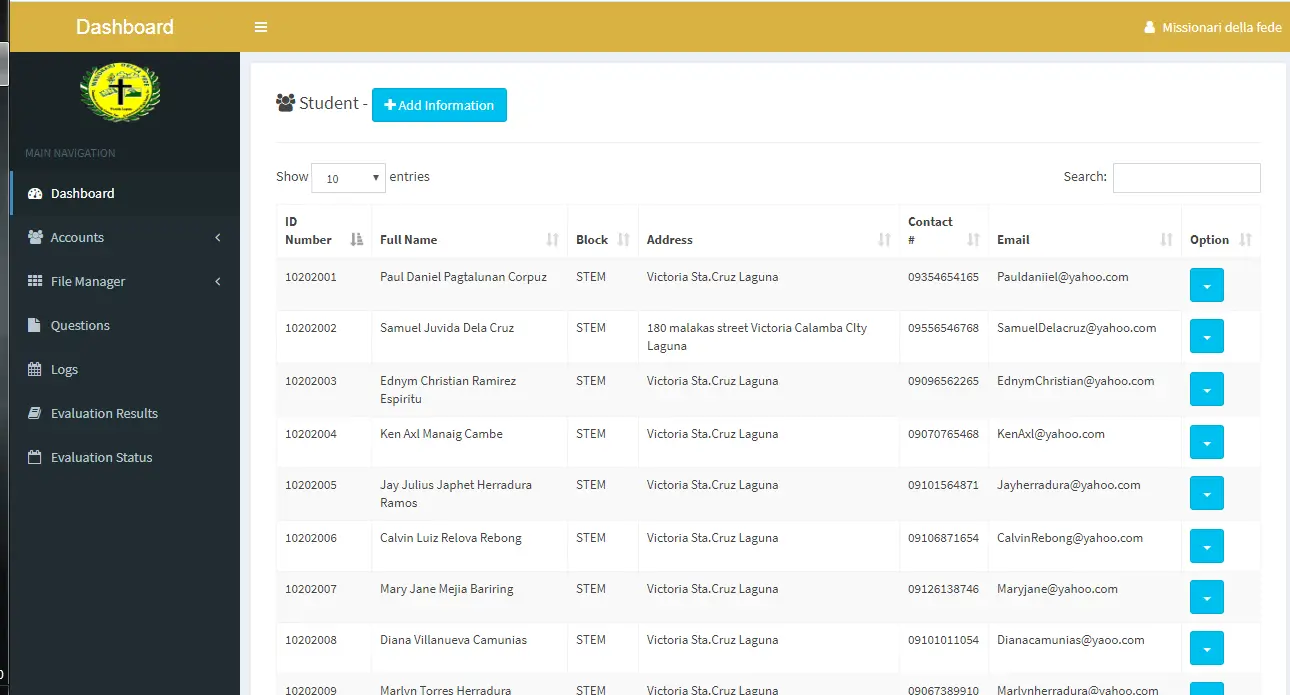Smart Healthcare Systems Project Ideas
Introduction
Table of Contents
Smart healthcare systems are revolutionizing the way we approach patient care. By integrating advanced technologies like Artificial Intelligence (AI), the Internet of Things (IoT), and data analytics, these systems enable real-time health monitoring, early diagnosis, and personalized treatment plans. From wearable devices that track vital signs to AI-driven virtual health assistants, smart healthcare solutions are improving patient outcomes and enhancing the efficiency of healthcare providers.
Importance of Healthcare Technology
The role of technology in healthcare has never been more critical. With the global rise in chronic diseases and aging populations, there is a growing need for innovative solutions that streamline healthcare processes and make medical services more accessible. Smart healthcare systems help bridge this gap by enabling remote patient monitoring, automated medication management, and predictive analysis. These advancements not only improve patient care but also reduce the burden on healthcare systems, lowering costs and increasing efficiency.
Research Objectives and Methodology
The primary objective of this research is to explore how smart healthcare systems can transform the delivery of healthcare services. By analyzing various technologies like AI, IoT, and data-driven systems, the research aims to identify key benefits and challenges in implementing these solutions. The methodology involves a comprehensive review of existing literature, case studies on healthcare technology integration, and interviews with healthcare professionals. This approach will help in gaining valuable insights into the practical applications and future potential of smart healthcare systems.
Potential Benefits of Smart Healthcare Systems
Smart healthcare systems are transforming the medical industry by integrating advanced technologies such as Artificial Intelligence (AI), Internet of Things (IoT), and data analytics to improve patient care and optimize healthcare processes. These innovations offer numerous benefits, including better patient outcomes through personalized treatments, enhanced efficiency in healthcare operations, and significant cost reductions by preventing unnecessary procedures and hospitalizations. Additionally, smart systems provide greater access to healthcare services, particularly for those in remote areas, by enabling telemedicine and remote patient monitoring. Together, these advantages are revolutionizing how healthcare is delivered and managed.
- Improved Patient Outcomes
Smart healthcare systems leverage advanced technologies like AI and real-time monitoring to provide more accurate diagnoses and personalized treatments. By tracking patient data continuously, healthcare providers can detect health issues early, leading to faster interventions and better overall patient outcomes. - Enhanced Healthcare Efficiency
Automation and data-driven insights improve operational efficiency in hospitals and clinics. Smart systems can streamline administrative tasks, such as appointment scheduling and patient record management, allowing healthcare professionals to focus more on patient care. Additionally, AI-powered tools assist in diagnosing diseases faster, enhancing decision-making processes. - Reduced Healthcare Costs
By enabling early diagnosis and remote monitoring, smart healthcare systems help prevent costly hospital admissions and readmissions. Automation also reduces the need for redundant tests and procedures, cutting down on operational expenses. In the long run, these innovations significantly lower overall healthcare costs for both patients and providers. - Enhanced Access to Healthcare Services
Telemedicine and remote monitoring solutions make healthcare more accessible, particularly for individuals in remote or underserved areas. Patients can consult with doctors, receive prescriptions, and track their health conditions from the comfort of their homes, breaking down geographical barriers to quality healthcare.

15 Smart Healthcare Systems Project Ideas
Here are 15 Smart Healthcare System Project Ideas with brief descriptions and recommended development tools:
- AI-Based Disease Prediction System
Description: Use AI to predict diseases based on patient data, such as symptoms, medical history, and lifestyle.
Tools: Python, TensorFlow/Keras, Pandas, Flask/Django, SQL.
- Remote Patient Monitoring System
Description: Monitor patient vital signs (e.g., heart rate, blood pressure) remotely using IoT devices and alert healthcare providers if anomalies occur.
Tools: IoT devices (Raspberry Pi/Arduino), Node.js, MQTT, Firebase, React Native.
- Smart Medication Reminder App
Description: A mobile app that reminds patients to take their medication on time, tracks their adherence, and sends notifications to caregivers.
Tools: React Native/Flutter, Firebase, SQLite, Twilio for notifications.
- AI-Powered Virtual Health Assistant
Description: Develop an AI chatbot to assist patients with symptom checking, medication reminders, and scheduling doctor appointments.
Tools: Python, Dialogflow, NLP libraries (spaCy), Flask/Django.
- Wearable Health Monitoring System
Description: Create a wearable device that tracks vitals like heart rate and temperature and sends data to a mobile app in real-time.
Tools: Arduino, Bluetooth sensors, Android Studio/Swift, Firebase.
- Blockchain-Based Medical Records System
Description: Build a secure blockchain system to store and share patient medical records across healthcare providers, ensuring privacy and immutability.
Tools: Ethereum/Hyperledger, Solidity, React.js, Node.js, IPFS.
- Telemedicine Platform with Video Consultations
Description: Develop a platform that allows patients to have virtual consultations with doctors through video calls and secure messaging.
Tools: WebRTC, Node.js, React.js, AWS, Zoom API.
- Smart Emergency Response System
Description: Create a system that uses IoT devices to detect medical emergencies (e.g., falls, heart attacks) and automatically notifies emergency services.
Tools: Raspberry Pi, Arduino, Twilio API, Node.js, GPS modules.
- AI-Powered Medical Image Analysis
Description: Build an AI model that analyzes medical images (e.g., X-rays, MRIs) for early detection of diseases like cancer.
Tools: Python, TensorFlow, OpenCV, Flask/Django.
- IoT-Based Hospital Management System
Description: An IoT-based system that monitors hospital equipment, patient beds, and vital signs to ensure operational efficiency.
Tools: Arduino/Raspberry Pi, Node.js, MongoDB, React.js.
- Smart Infant Monitoring System
Description: Develop a system that monitors an infant’s breathing, heart rate, and movement while they sleep, alerting parents if any irregularities occur.
Tools: Arduino, Bluetooth, Android Studio/Flutter, Firebase.
- AI-Based Mental Health Monitoring App
Description: Use AI to monitor and assess mental health through daily user inputs, voice tone, and text sentiment analysis.
Tools: Python, TensorFlow, React Native, Twilio API for notifications.
- Smart Hospital Bed Management System
Description: Create a system to manage hospital bed occupancy and track patient movement within the hospital using sensors and IoT devices.
Tools: Arduino/Raspberry Pi, Firebase, React.js, Node.js.
- AI-Powered Personalized Nutrition Planner
Description: An AI-driven system that generates personalized diet plans based on user health metrics, goals, and medical conditions.
Tools: Python, TensorFlow, React Native/Flutter, Firebase.
- Voice-Controlled Healthcare Assistant for Seniors
Description: A voice-activated system that helps elderly patients manage medication, call for help, and schedule doctor appointments.
Tools: Amazon Alexa Skills Kit, Python, AWS Lambda, Firebase.
Each project idea can be customized based on specific requirements and target users. The combination of technologies like AI, IoT, and blockchain opens up a wide range of possibilities for developing innovative healthcare solutions.
Conclusion
Summary of Key Findings and Recommendations
Smart healthcare systems offer transformative benefits by integrating advanced technologies such as AI, IoT, and data analytics. These innovations improve patient outcomes, increase healthcare efficiency, reduce costs, and enhance access to medical services. Based on these findings, it is recommended that healthcare providers prioritize the adoption of smart technologies, focusing on scalable solutions like remote monitoring, AI-driven diagnostics, and telemedicine platforms to address current challenges.
Potential Impact of the Proposed System on Healthcare
The proposed smart healthcare systems have the potential to greatly enhance patient care and the efficiency of healthcare delivery. By enabling early diagnosis, personalized treatments, and seamless data sharing, these systems could reduce hospital admissions, lower treatment costs, and make healthcare more accessible to underserved populations. The integration of real-time monitoring and AI can revolutionize preventive care, leading to healthier societies and more efficient healthcare services.
Future Directions for Research and Development
Future research should focus on enhancing data security, interoperability, and patient privacy in smart healthcare systems, particularly in areas like blockchain for secure medical records and AI for real-time decision support. Additionally, further development is needed in wearable technology, telemedicine, and remote care systems to improve scalability and affordability. As smart healthcare continues to evolve, its integration into mainstream healthcare could become a cornerstone of global health strategies.
You may visit our Facebook page for more information, inquiries, and comments. Please subscribe also to our YouTube Channel to receive free capstone projects resources and computer programming tutorials.
Hire our team to do the project.

